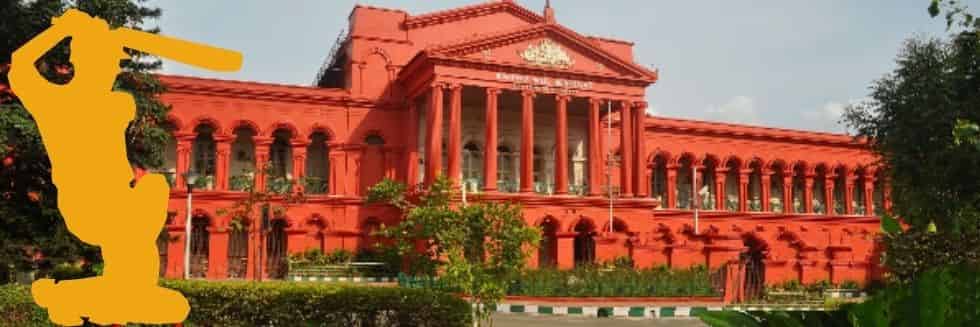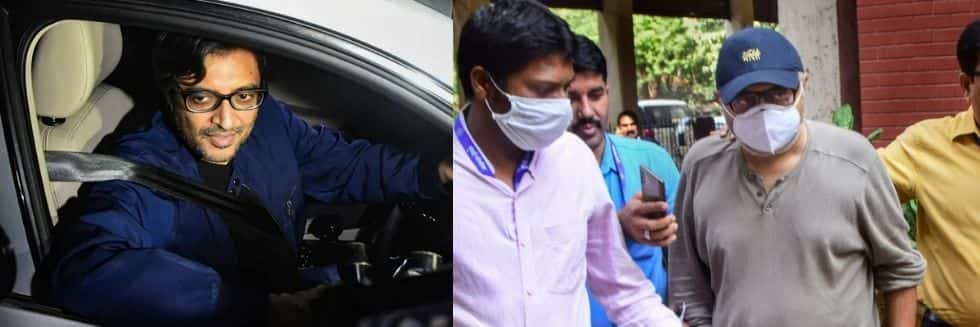Karnataka High Court on Friday noted that match-fixing will not amount to the offence of cheating under Section 420 of the Indian Penal Code (IPC).
The High Court bench comprising Justice Sreenivas Harish Kumar observed that while it is true that if a player indulges in match-fixing, a general feeling will arise that he has cheated the lovers of the game, that does not give rise to an offence under IPC.
“For invoking the offence under Section 420 of IPC, the essential ingredients to be present are deception, dishonest inducement of a person to deliver any property or to alter or destroy the whole or any part of valuable security. It was argued that cricket buyers go to watch the match by buying tickets and thereby they are induced to part with their property. Of course, money is property but they buy tickets voluntarily. So the question of inducement to buy a ticket can be ruled out,” said Justice Kumar.
The court noted that match-fixing may indicate dishonesty, indiscipline, and mental corruption.
The bench clarified that BCCI can initiate action under their by-laws against match-fixing but FIR under Section 420 of the Indian Penal Code cannot be registered.
The bench was hearing the petitions filed by Karnataka Premier League (KPL) players seeking directions to quash the FIR filed against them under Section 420 (Cheating and dishonestly inducing delivery of property) and Section 120B (Punishment of criminal conspiracy) of IPC.
In November 2019, the City Crime Branch of Bengaluru found out about allegations of match-fixing of the KPL matches which were held between August 15 and August 31. A complaint was registered against them and a charge sheet was also filed.
In the complaint, it was alleged that there was a conspiracy between Belagavi Panthers team owners, players, and bookies. They were allegedly paid to concede runs, playing slowly, and intentionally losing matches.
The petitioners argued that match-fixing is not an offence under IPC and is not defined as an offence under any law. It would at most be a breach of the Code of Conduct of the Board of Control for Cricket in India (BCCI), so only the BCCI has the authority to take action against the players, the petitioners added.
Additional Advocate General Dhyan Chinnappa, representing the State, submitted that the Anti-Corruption code of the BCCI does not bar any criminal proceedings and the action of the accused form an offence under IPC.
“People buy tickets to watch a match, believing that they are going to witness a fair game with just results. When there is a predetermined result of the game due to match-fixing, the viewers of the game are cheated,” said Chinnappa.
He went on to argue, “The property which they are induced to deliver dishonestly is the money they pay to buy the tickets. Section 120-B, (criminal conspiracy) is an independent offence, for which the petitioners can be tried even if Section 420 is held to be not applicable.”
However, the court did not find the essential ingredients of the cheating offence and refused to accept the contention that the viewers are induced to part with their money by buying tickets.
“They may have a feeling that they are going to witness a fair game being played, but they buy the tickets voluntarily. It is true that if a player indulges in match-fixing, a general feeling will arise that he has cheated the lovers of the game. But, this general feeling does not give rise to an offence,” the court said.
The single-judge bench made it clear that even if the entire charge sheet averments are taken to be true on their face value, they do not constitute an offence.
Karnataka Police Act was also invoked against the petitioners and bookies, claiming that betting amounts to gaming which constitutes an offence under Section 2(7) [wagering or betting in connection with any game of chance] of the Act.
However, the High Court noted that the Karnataka Police Act cannot apply, since the explanation to Section 2(7) clearly states that a game of chance does not include any athletic game or sport.
The bench added, “Even if betting takes place in cricket, it is an athletic game and cannot be brought under the definition of “gaming” under the Act.”
The state also contended that Section 120B is an independent offence of conspiracy, noting that if the allegations against them do not form an offence under Section 420, a charge of criminal conspiracy cannot be made out against the petitioners. The bench didn’t accept this contention too.
Thus, Karnataka High Court quashed all the proceedings against the petitioners.






